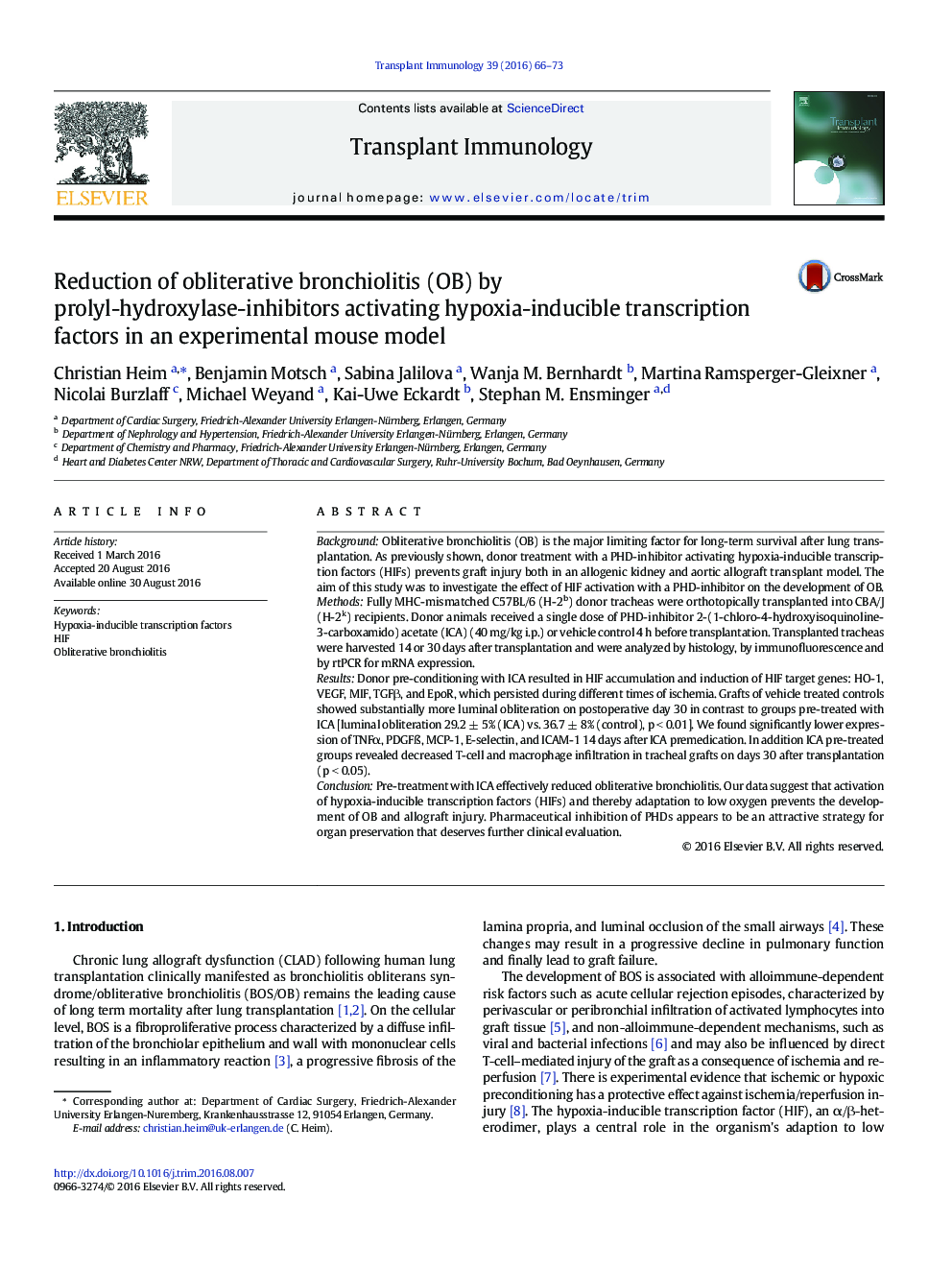| Article ID | Journal | Published Year | Pages | File Type |
|---|---|---|---|---|
| 5670472 | Transplant Immunology | 2016 | 8 Pages |
â¢ICA stabilizes HIF-α and induces HIF target genes within tracheal graftsâ¢ICA procurement results in significantly reduced levels of luminal obliterationâ¢Pre-treatment with ICA reduces intragraft cytokine- and adhesion molecule mRNA expressionâ¢ICA pretreatment decreases T cells and macrophages in ICA-pretreated graftsâ¢Pharmaceutical inhibition of PHDs is an attractive strategy for organ preservation
BackgroundObliterative bronchiolitis (OB) is the major limiting factor for long-term survival after lung transplantation. As previously shown, donor treatment with a PHD-inhibitor activating hypoxia-inducible transcription factors (HIFs) prevents graft injury both in an allogenic kidney and aortic allograft transplant model. The aim of this study was to investigate the effect of HIF activation with a PHD-inhibitor on the development of OB.MethodsFully MHC-mismatched C57BL/6 (H-2b) donor tracheas were orthotopically transplanted into CBA/J (H-2k) recipients. Donor animals received a single dose of PHD-inhibitor 2-(1-chloro-4-hydroxyisoquinoline-3-carboxamido) acetate (ICA) (40 mg/kg i.p.) or vehicle control 4 h before transplantation. Transplanted tracheas were harvested 14 or 30 days after transplantation and were analyzed by histology, by immunofluorescence and by rtPCR for mRNA expression.ResultsDonor pre-conditioning with ICA resulted in HIF accumulation and induction of HIF target genes: HO-1, VEGF, MIF, TGFβ, and EpoR, which persisted during different times of ischemia. Grafts of vehicle treated controls showed substantially more luminal obliteration on postoperative day 30 in contrast to groups pre-treated with ICA [luminal obliteration 29.2 ± 5% (ICA) vs. 36.7 ± 8% (control), p < 0.01]. We found significantly lower expression of TNFα, PDGFÃ, MCP-1, E-selectin, and ICAM-1 14 days after ICA premedication. In addition ICA pre-treated groups revealed decreased T-cell and macrophage infiltration in tracheal grafts on days 30 after transplantation (p < 0.05).ConclusionPre-treatment with ICA effectively reduced obliterative bronchiolitis. Our data suggest that activation of hypoxia-inducible transcription factors (HIFs) and thereby adaptation to low oxygen prevents the development of OB and allograft injury. Pharmaceutical inhibition of PHDs appears to be an attractive strategy for organ preservation that deserves further clinical evaluation.
